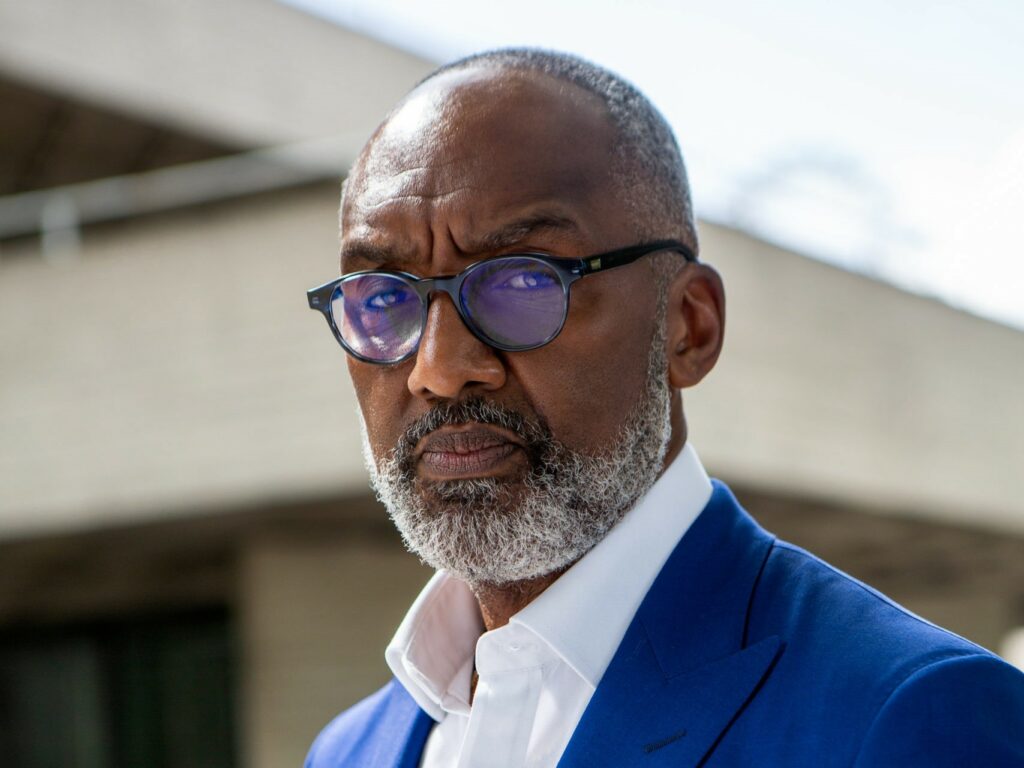sustainability
At Barrow Cadbury Trust, we’re working to build an economy that delivers more for people and planet – so we’ve joined forces with dozens of organisations in the Future Economy Alliance to push this up the political agenda.
Today we’ve been in Parliament to launch a new report on the national policy change needed to better support our growing movement and create a stronger, fairer, greener economy. You can read all the details in our ‘Business Plan for Britain’ on the Future Economy Alliance website.

We’re calling on the next UK Government to recognise the importance of working for a purpose beyond profit and make this mission-led approach the national norm. An estimated four million of us work in social enterprise and other mission-led organisations; we’re living proof that business can be a force for good, and we need those in power to unleash our full potential.
It was heartening to see influential people taking an interest at the House of Lords this morning – including cross-party MPs, national journalists and economic think tanks – but publishing this report is just the start. We’re determined to make this a priority for the General Election and beyond.
Arvinda Gohil OBE, chair of the Future Economy Alliance, commented: “Millions of us across the UK work in mission-led organisations that show the way to a stronger, fairer, greener economy. We just need those in power to unleash the full potential of our movement, so that this way of working becomes the national norm. With government and business working in partnership, we can build an economy where all of society profits.”
Lord Victor Adebowale CBE added: “It’s exciting to see champions of change coming together from all business sectors across the UK, united in the work to fix our economy. As a mission-led entrepreneur myself, I hope this message will ring loud and clear in the halls of Westminster: Business as usual isn’t working; we need a new business plan for Britain.”
T2A Chair Leroy Logan MBE reflects on the findings of the Alliance for Youth Justice’s (AYJ) briefing paper on the transition from the youth to adult justice system – focusing on the experiences of Black, Asian and Minority Ethnic young people.

A spotlight on racial disparities
As the briefing suggests, young people who turn 18 while in contact with the justice system face a steep cliff edge. Studies show that this age is a crucial turning point where many young people begin to desist from crime with the right support and interventions. But rather than take advantage of this capacity for change, statutory services fall away. For Black, Asian and Minority Ethnic young people, the transition to the adult justice system can be even more challenging.
This latest briefing from AYJ has cast a harsh spotlight on the failings of our justice system to address the racial disparities that have blighted many young people’s lives. From an early age, many Black, Asian and Minority Ethnic young people find themselves associated with criminal stereotypes. Labelling young people in this way is incredibly damaging, eroding self-belief and making it harder to move towards a pro-social identity. Once Black, Asian and Minority Ethnic children enter the justice system, they are less likely to be diverted, more likely to receive harsher sentences, and more likely to be sent to custody, sentenced or on remand, compared to white children.
“Guilty before proven innocent… you kind of learn authority figures don’t actually care.” – (Young person)
This can create a huge gulf in understanding and trust between Black, Asian and Minority Ethnic young adults and the professionals working in the system. Sadly, these findings confirm what many of us working in the sector already expected. That’s why I welcome AYJ drilling down into the causes of this crisis, and what needs to change to deliver better outcomes. Too often, we focus solely on what’s not working and forget that we must create a roadmap for the future we wish to see.
An over-stretched and under-resourced system
It’s clear that even with a diverse workforce, culturally competent training, and the best will in the world, the probation service is struggling to keep its head above water. A professional quoted in the briefing had this to say: “Record levels of staff sickness, extended sick leave, people fleeing the service in droves – that then exacerbates every other issue we have. We can’t be ambitious, we can’t be progressive, we can’t make many changes if you’re barely able to keep the regime running.” There are many admirable professionals working in the system who want to do better for young adults, but they don’t have the time, resources, or support to implement creative approaches. Without sufficient investment, the system can barely meet young adults’ basic needs – let alone support them to take steps towards a more positive future.
Collaboration with the VCSE sector
In this depressing climate, the work of voluntary and community organisations has become even more vital. Specialist Black and Ethnic Minority-led organisations have an intimate understanding of the communities Black, Asian and Minority Ethnic young people come from and how their experiences inform their behaviour and identity. As the research highlights, these grassroots organisations are well placed to provide nuanced support that recognises these young people’s overlapping needs – support that statutory services would struggle to provide.
These organisations are also more likely to have lived experience embedded in their staff and support services, meaning they can provide peer mentoring and positive role models – both of which are essential components in facilitating the shift towards a pro-social identity.
Ring-fenced funding to commission specialist organisations
I believe that we could take this further by developing a model where specialist Black and Minority-Ethnic led grassroots organisations are commissioned to operate services in their communities. Funding would be ring fenced for these local organisations who have the expertise to deliver the best outcomes. This model could be supported by local roundtables where information and knowledge are shared regularly so that young adults can access support from multiple agencies. Meeting in this way will also help criminal justice agencies better understand how these organisations are well placed to support young adults. Having buy in from all partners will be vital to the success of this model.
The Newham Transition to Adulthood Hub is a great example of how this approach can work in practice. They have a wide variety of services in one space, so staff can consult each other on individual cases and referrals to different services are much easier and more efficient. Regular spotlight sessions are held where different teams share their expertise and explain how their services can benefit young adults.
Grassroots organisations excluded from funding opportunities
Unfortunately, the AYJ’s report found that organisations with strong community links and knowledge are effectively excluded from funding opportunities. They lack the resources to compete with larger organisations who can meet the excessive commissioning processes and compliance requirements demanded by the Ministry of Justice and HMPPS. However, many of these larger organisations lack the knowledge and cultural competence to successfully deliver these services. Shockingly, they often sub-contract their services at a lower rate to the very grassroots organisations that have been denied a place at the table.
It is crucial that the Ministry of Justice and HMPPS immediately reform VCS funding allocation so that specialist Black and Minority-Ethnic led grassroots organisations can build the capacity of their services – ensuring every young person receives age-appropriate, trauma-informed, culturally competent services that reflect their entire lived experience.
Anna Coote, Head of Social Policy at NEF blogs about NEF’s new report ‘People, planet, power’ and how we might build a new social settlement. This blog was originally published on NEF’s website.
How do we live together and relate to one another? How can we make sure that everyone has an equal chance to lead a fulfilling and secure life? What’s the best way to help each other when things go wrong that we cannot cope with alone? These are just some of the challenges facing our society today. They raise wider questions about our relationship with each other and with the government, the role of the welfare state, and the quality of everyday life. In a major new report out today, ‘People, planet, power’ we set out proposals for a new social settlement. It defends and builds on the best of Britain’s welfare state but calls for urgent changes, because there are new risks that threaten our well-being and our future: widening social and economic inequalities; accumulations of power by wealthy elites; and the imminent danger of catastrophic damage to the natural environment. Our new social settlement has three goals:
- Social justice – wellbeing and equality are essential for people to lead a good, fulfilling life, and to participate in society.
- Environmental sustainability – we must live within environmental limits to ensure that the natural resources needed for life are protected and preserved for present and future generations.
- A more equal distribution of power – people should be able to participate in and influence decisions at local and national levels, reducing current inequalities in power.
To achieve these goals, the report sets out new priorities for policy and practice. It highlights issues that tend to be overlooked by policy-makers and points to a new direction of travel. It represents NEF’s contribution to wider debates about what kind of society we want for the future. For a start, we cannot rely on continuing economic growth to produce more and more tax revenues to pay for more and better public services. Instead, we must shift investment and action upstream to measures that prevent harm, rather than simply cope with the consequences. We must value and nurture the ‘core economy’ – all those everyday human resources and unpaid activities that underpin the formal economy. And we must reclaim and strengthen the idea of solidarity: understanding each other’s needs and interests, and sharing responsibility – not just in close-knit groups, but between groups of different kinds and across generations.
Building on this approach, the report outlines proposals for practical change:
Rebalance work and time:
- a new industrial and labour market strategy to achieve high quality and sustainable jobs for all, with a stronger role for employees in decision-making
- a gradual move towards shorter and more flexible hours of paid work for all aiming for 30 hours as the new standard working week
- an offensive against low pay to achieve decent hourly rates for all
- high quality, affordable childcare for all who need it
Release human resources:
- support and encourage the unvalued and unpaid assets and activities that are found in everyday life beyond the formal economy
- adopt as standard the principles of co-production so that service users and providers work together to meet needs
- change the way public services are commissioned to focus on outcomes and co-production
Strengthen social security:
- turn the tide against markets and profit seeking, developing instead more diverse, open and collaborative public services
- build a more rounded, inclusive and democratic benefits system
Plan for a sustainable future:
- promote eco-social policies – such as active travel and retro-fitting homes – that help to achieve both social justice and environmental sustainability
- offset the socially regressive effects of carbon pricing and other pro-environmental policies
- ensure that public institutions lead by example
- establish new ways of future-proofing policies
Seven decades on from William Beveridge’s ground-breaking report, it is high time for a wider debate about a new social settlement that meets the challenges of the 21st century.
